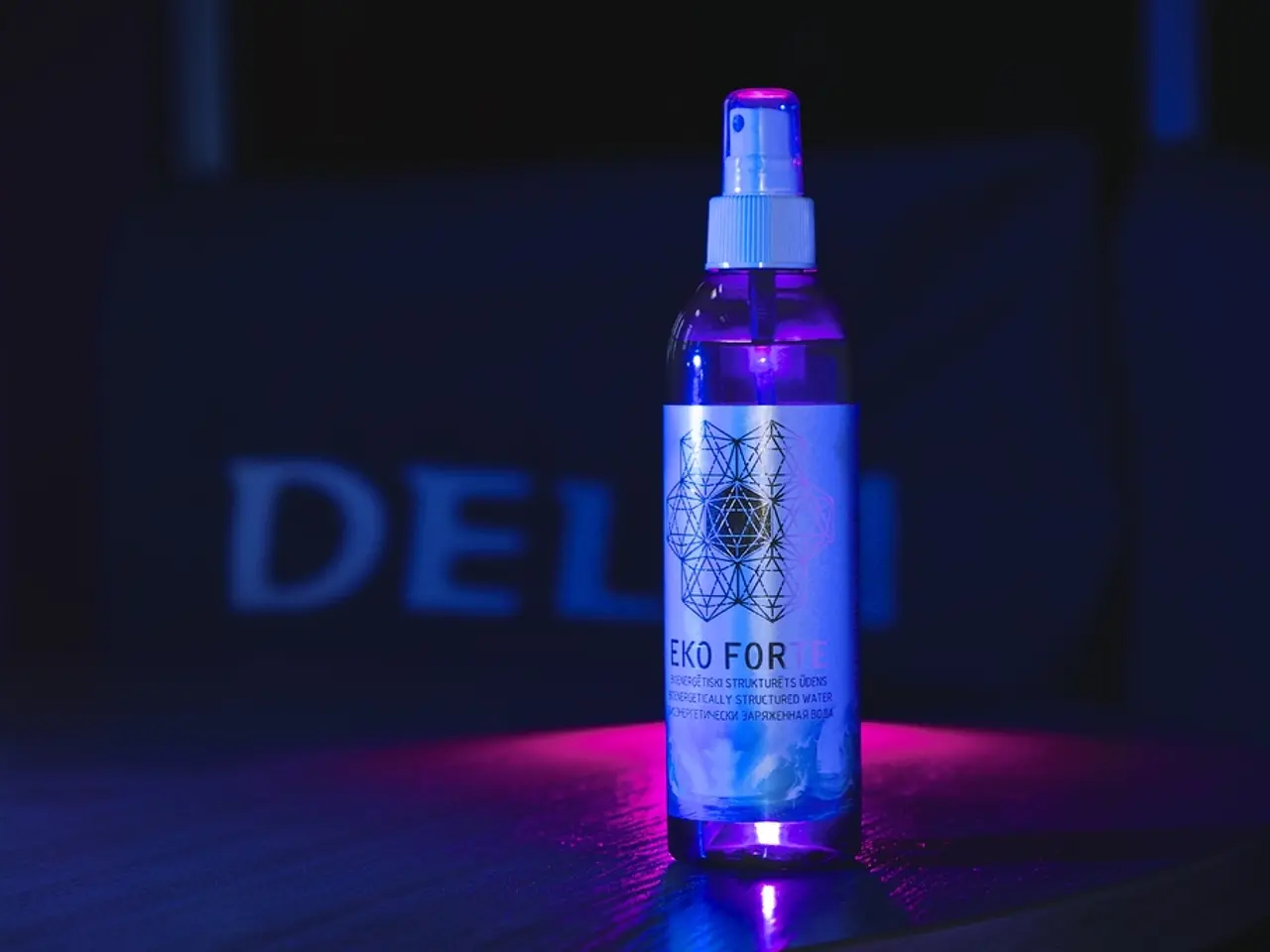Cetearyl alcohol: Its Role in Skin and Hair Care Products Explained
Cetearyl alcohol, a fatty alcohol derived from coconut or palm oil, is a versatile ingredient in skincare and haircare formulations. This waxy, white solid, typically sold in the form of flakes, serves multiple roles in these products [1][2][3][4][5].
In skincare, cetearyl alcohol functions as an emollient, softening and smoothing the skin, and as an emulsifier, stabilizing and thickening products to improve texture and application [5]. It conditions and soothes sensitive skin while helping to maintain hydration [1][5].
In haircare, cetearyl alcohol improves moisture retention, enhances elasticity, and activates curls, making hair easier to style and manage [2]. It is a common ingredient in various products, including cleansers, conditioners, curl treatments, shampoos, and creams [1][2][3][4][5].
While cetearyl alcohol is safe for human use, as evidenced by an older 1988 safety assessment [3], its environmental impact is less clear. SAAPedia classifies it as biodegradable, but the Environmental Working Group lists it as a suspected environmental toxin, highlighting the need for further research [3].
It's important to note that not all alcohols in cosmetics are created equal. While cetearyl alcohol is beneficial, some products contain astringent alcohols, which can dry and irritate the skin, particularly for those with sensitive skin [6]. Other astringent alcohols, such as isopropyl alcohol, methanol, and benzyl alcohol, should be used with caution.
Cetearyl alcohol is insoluble in water but soluble in oils and alcohols. It is often found in a wide range of products, including moisturizing creams, shampoo, conditioners, exfoliants, sunscreens, hair sprays, hair dyes, hair mousse, facial cleansers, makeup, shaving creams, body washes and bar soaps, baby wipes, antiperspirants and deodorants, toothpaste, nail treatment, hand sanitizer, body oil, mouthwash, fragrance, glitter, and more [1][5].
When reading a product's list of ingredients, ethanol, or ethanol, a type of astringent alcohol, may be listed as "alcohol", "ethanol", "denatured alcohol", "alcohol denat", or "SD alcohol" [7]. Products that do not contain ethanol may have "alcohol free" on the label, but this label does not apply to fatty alcohols such as cetearyl, cetyl, or stearyl alcohol [7].
In conclusion, cetearyl alcohol is a common and beneficial ingredient in skincare and haircare products. It functions as an emollient to soften and smooth the skin and hair, acts as an emulsifier and thickening agent for product stability, helps improve moisture, elasticity, and manageability of hair, and conditions and soothes sensitive skin while providing hydration [1][2][3][4][5]. As with any cosmetic product, it's essential to use products containing cetearyl alcohol according to the label instructions.
References: [1] https://www.dermalogica.com/products/ultracalming-cleanser [2] https://kristinesshair.com/products/softening-conditioner [3] https://www.ewg.org/skindeep/ingredient/706721-CETEARYL_ALCOHOL/ [4] https://kevinmurphy.com.au/products/easyrider/ [5] https://www.hairstory.com/products/new-wash-original [6] https://www.rosacea.org/patients/mailbox/cosmetics_personal_care_products.php [7] https://www.ewg.org/skindeep/ingredient/703074-ETHANOL/
- Dermatology involves a thorough understanding of skin health, and cetearyl alcohol, found in skincare and haircare products, plays a significant role in maintaining skin health and wellness.
- As part of a skin-care routine, cetearyl alcohol acts as an emollient, softening and smoothing the skin, and as an emulsifier, enhancing product stability and improving texture.
- Skin-care products and haircare formulations also benefit from the conditioning and soothing qualities of cetearyl alcohol, making it a popular and beneficial ingredient in health-and-wellness products.




